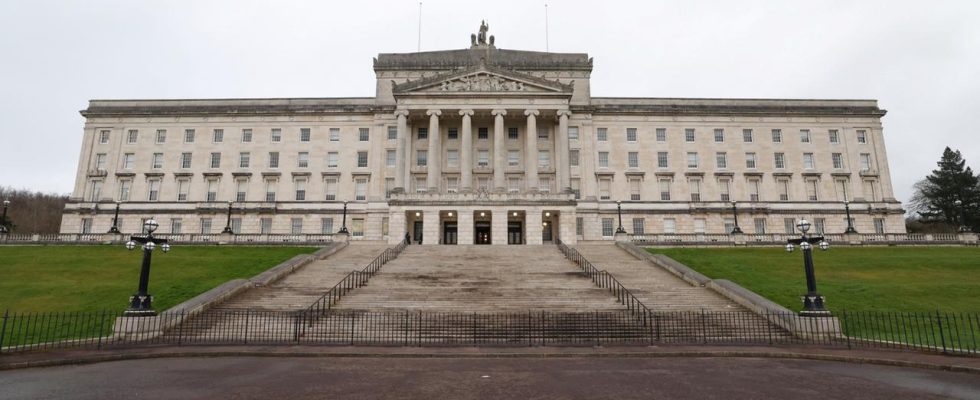For two years, the main Protestant party boycotted the formation of a government in Northern Ireland. Now she is giving up her veto. Sinn Fein, which is aiming for unification with Ireland, is likely to come to power.
There has been no regional government in Northern Ireland for over 700 days. Important political decisions could not be made – for example, public servants and teachers in England have long since received salary increases. A corresponding agreement could not be negotiated in Northern Ireland because there was no government.
In the state health service, the burden on specialists has once again increased enormously, and waiting times for patients are at an all-time high. Christine Campbell had to wait five months for a GP appointment before being diagnosed with cancer: “Poor people in particular are at greater risk because there is no government,” she told a BBC reporter.
DUP ends blockade
That should change now. Parliament finally meets. The hanging game is over. This was made possible through a compromise. The largest unionist party, the DUP, ended its blockade and the government in London was able to reach a deal. Accordingly, goods that go to Northern Ireland from England, Wales or Scotland should no longer be checked.
There were sporadic checks. The aim is to prevent goods from Great Britain via Northern Ireland from reaching the Republic of Ireland and thus into the European internal market that do not meet European standards. This problem should now be resolved.
This was particularly important to the Unionists who campaign for Northern Ireland to remain in the United Kingdom. They fear gradual separation from Great Britain and saw border controls within the United Kingdom as an obstacle for companies and, above all, as a signal of separation.
The way is now clear for a new parliament and a government that was elected in May 2022 but was unable to meet.
Sinn Fein wants unification with Ireland
The new “First Minister”, something like the Prime Minister of Northern Ireland, is called Michelle O’Neill. She is deputy leader of Sinn Fein. The party advocates unification with the Republic of Ireland. The electorate is predominantly Catholic, often with Irish Republican connections.
The fact that Sinn Fein became the strongest force in 2022 triggered a small earthquake: it was the first time that the Republican forces were the strongest party in the Northern Irish Parliament. Previously, the London-loyal DUP was the strongest force. Mary Lou McDonald, leader of Sinn Fein, has just said again that unification is “within reach”.
Many Northern Irish people against unification
However, there are many arguments against the idea that unification is really so close. A merger would have to be preceded by a referendum. In a poll for The Times newspaper, 30 percent of respondents said they were in favor of unification, while 51 percent were against it. Many Northern Irish people believe that the status quo ensures security and prosperity.
The merger would be politically demanding. Old wounds between communities could open up. Different pension and health insurance systems would have to be harmonized.
In the Republic of Ireland there is definitely a position that in the event of a unification one would bring many problems – including financial burdens – into the house. But the strongest force in the parliamentary elections in the Republic of Ireland could also be Sinn Fein.
Christoph Prössl, ARD London, tagesschau, February 2nd, 2024 6:35 p.m

